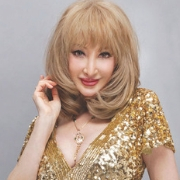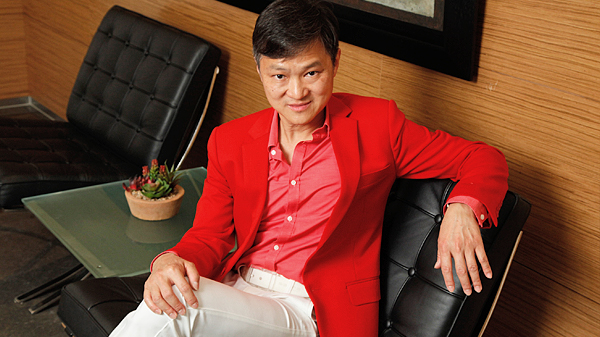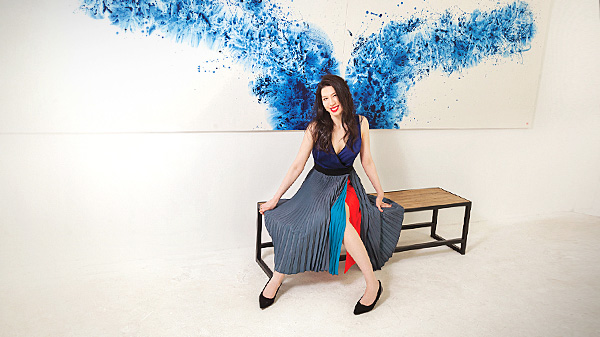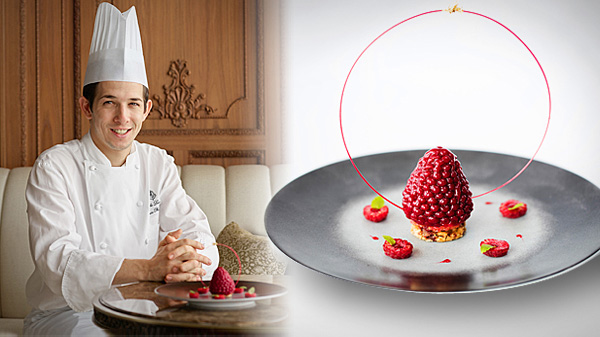Fanny Sieh, co-founder and co-owner of restaurant group Maximal Concepts, shares her top tips for leading a balanced lifestyle and finding entrepreneurial success…
So, how did it all begin for you?
Well, I was born and brought up in Hong Kong by two fantastic parents. My dad ran a successful business in the textile industry and, looking back, I think he was the perfect example of that first generation of Shanghainese entrepreneurs who made it big in Hong Kong back then. I will be forever grateful for how they brought me up. They’re the ones who motivated me to become a Grade A student, while encouraging me to try a range of different hobbies, ballet, tennis, swimming… All in all, I’d say I had a perfect childhood.
Your education was a little unconventional…
True. I started out at Maryknoll Convent School in Kowloon Tong, where English was the primary teaching language. This made me quite Westernised at a young age. At 13, I took the initiative and applied to a few prestigious prep schools on the East Coast of the US. I was eventually accepted by Northfield Mount Hermon School in Massachusetts.

And New York was next…
As you might imagine, nothing terribly exciting happens in Massachusetts. So, to compensate, I won a place at NYU and headed off for four very exciting years. It exposed me to people from all walks of life – Wall Street corporates, fashionistas, the arty brigade…
My major was English Literature and Humanities and, at the time, I had plans to become a psychiatrist. In the end, though, I returned to Hong Kong to work in the film industry instead. It was around that time that I really got involved with the local social scene, eventually coming to be regarded as the Queen of the Ball.

You’ve long been a champion of the healthier lifestyle. What’s the appeal there?
Oh, I love living as healthily as possible. It makes me feel lighter and more energetic, while I also sleep better, have a better complexion and even a transformed aura. Adopting this particular lifestyle has definitely changed me and only for the better.
It even led you study for degree at San Francisco Cooking School. Did that give you any particular healthy eating insights?
Firstly, I’d say, always eat what’s best for your body – you really are what you eat. Don’t go overboard with carbs and meat – throw in a few veggies and fruits. Secondly, stay away from animal fats, junk food and sweets. Swap them for healthier nibbles – avocado, salmon and natural salt-free nuts. Finally, do some research. Study nutrition and take the time to read labels when you go shopping to work out what’s healthy and what’s not. Of course, healthy eating is only part of healthy living. Exercising regularly is very important, and you also need to cultivate a healthy state of mind.

As co-founder and co-owner of Maximal Concepts, the company behind a number of Hong Kong’s best regarded restaurants – notably Mott 32, Blue and Brickhouse – has your love of healthy eating informed them?
Definitely. We currently have eight restaurants, but my favourite is Mott 32. It’s an East-meets-West Chinese restaurant. While it doesn’t only serve vegetarian food, healthy eating and sustainable food quality are very much part of its DNA. Our concept is to get ingredients fresh from the farm to the table. We’ve also banned MSG, cut down on the salt and refined sugar content and prioritised the use of fresh herbs and seasonings.
What’s next for Maximal Concepts then?
We’re very excited about Mott 32’s global roll-out. We opened our first Vancouver branch last year, with Bangkok soon to follow. The one I am most looking forward to, though, is our Las Vegas launch. While I can’t give you an exact date just yet, just watch this space…

As a successful businesswoman, what do you think are the key attributes that an entrepreneur needs to have?
The key is ASK – attitude, skill, knowledge – and a willingness to learn. Take notice of the world around you – its politics, its economic realities and the kind of people you find yourself among. That’s how you can spot trends at a very early stage, well before they fully emerge. Most importantly, don’t let tunnel vision hinder your mindset. Have a clear vision and try to make that a reality. I always bear in mind what Michelangelo said: “Every block of stone has a statue inside. The sculptor’s task is to find it.”

What advice would you give to the women out there who are thinking about starting their own businesses?
Don’t be a follower, be a leader – though that’s quite a challenge in the social media-fixated world of today. Basically, don’t let negative comments distract you from achieving your goals. There will always be people looking to tell you that certain things are beyond you, especially if you are a woman. Ignore all that. You’re not here to satisfy those people or to win their approval.
Thank you.
To read the full version of this interview, please check out the latest September 2018 issue of Gafencu’s print magazine or the PDF version on the Gafencu app. Download the app from the Google Play Store or Apple App Store.
Text: Tenzing Thondup
Photos: Neville Lee
Art Direction & Styling: San Wong
Jewellery: Exclusively from Bulgari
Make-up: Irene Hung
Hair: Michael Lo @ LA BIOSTHETIQUE












































